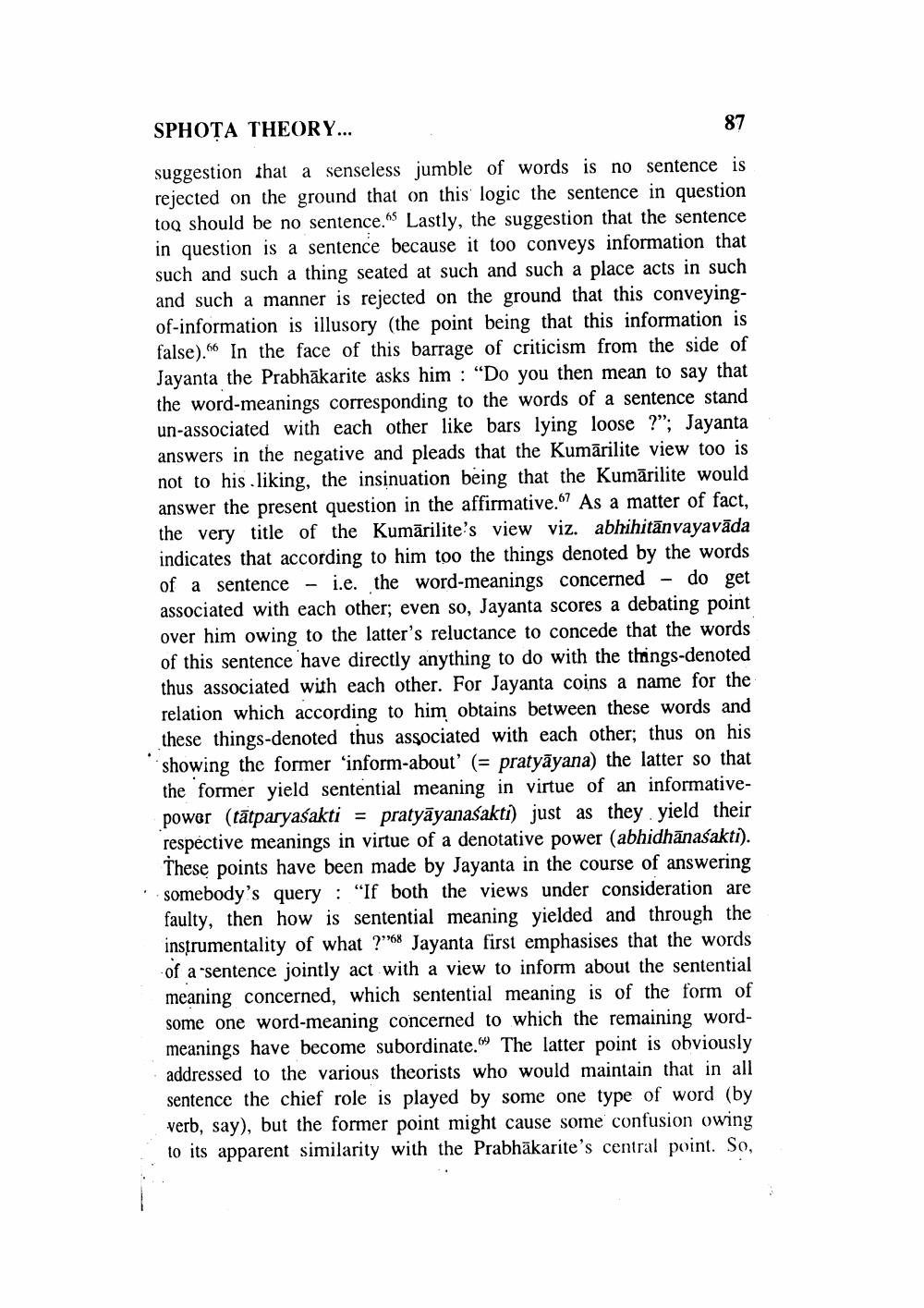________________
SPHOTA THEORY...
82
suggestion that a senseless jumble of words is no sentence is rejected on the ground that on this logic the sentence in question too should be no sentence. Lastly, the suggestion that the sentence in question is a sentence because it too conveys information that such and such a thing seated at such and such a place acts in such and such a manner is rejected on the ground that this conveyingof-information is illusory (the point being that this information is false). In the face of this barrage of criticism from the side of Jayanta the Prabhākarite asks him : "Do you then mean to say that the word-meanings corresponding to the words of a sentence stand un-associated with each other like bars lying loose?"; Jayanta answers in the negative and pleads that the Kumārilite view too is not to his liking, the insinuation being that the Kumārilite would answer the present question in the affirmative." As a matter of fact, the very title of the Kumārilite's view viz. abhihitānvayavāda indicates that according to him too the things denoted by the words of a sentence - i.e. the word-meanings concerned - do get associated with each other; even so, Jayanta scores a debating point over him owing to the latter's reluctance to concede that the words of this sentence have directly anything to do with the things-denoted thus associated with each other. For Jayanta coins a name for the relation which according to him obtains between these words and these things-denoted thus associated with each other; thus on his showing the former 'inform-about' (= pratyāyana) the latter so that the former yield sentential meaning in virtue of an informativepower (tātparyasakti = pratyāyanasakti) just as they yield their respective meanings in virtue of a denotative power (abhidhānasakti). These points have been made by Jayanta in the course of answering somebody's query: “If both the views under consideration are faulty, then how is sentential meaning yielded and through the instrumentality of what ?68 Jayanta first emphasises that the words of a sentence jointly act with a view to inform about the sentential meaning concerned, which sentential meaning is of the form of some one word meaning concerned to which the remaining wordmeanings have become subordinate. The latter point is obviously addressed to the various theorists who would maintain that in all sentence the chief role is played by some one type of word (by verb, say), but the former point might cause some confusion owing to its apparent similarity with the Prabhākarite's central point. So,




